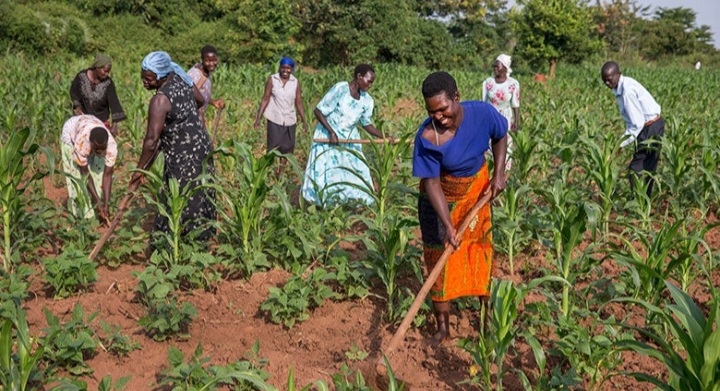NIRSAL completes mid-year training for farmers in Oyo, Imo, Sokoto, Kwara states

By George George Idowu
The Nigeria Incentive-Based Risk Sharing System for Agricultural Lending (NIRSAL Plc) has successfully concluded a mid-year training program for lead farmers and extension agents in the aquaculture and cassava value chains, held in Sokoto, Kwara, Oyo and Imo State.
Head of Corporate Communications at NIRSAL Plc, Jude Nnadozie, confirmed this in a statement released on Wednesday in Lagos.
According to him, the program aimed at enhancing farmers’ abilities to access and repay commercial loans attracted over 2,000 participants, including representatives from various state governments.
NIRSAL Plc, an initiative of the Central Bank of Nigeria, was established to de-risk agriculture and agribusiness financing, with the goal of increasing the flow of finance and investment into the agricultural value chain from multiple sources.
He said the training was conducted under NIRSAL’s Technical Assistance pillar, which focuses on researching, developing, and promoting value chain improvement initiatives.
The statement emphasized NIRSAL’s commitment to promoting the Agro Geo-Cooperative approach to primary production, which targets experienced lead farmers capable of disseminating new knowledge to their cooperatives.
In Imo State, 500 participants gathered in both urban and rural locations for training focused on fish production, a pattern that was replicated in Sokoto State. In contrast, the sessions in Oyo and Kwara states concentrated on the cassava value chain.
The statement included remarks from Uche Agabige, Chairman of the Imo State House Committee on Agriculture, who praised NIRSAL for incorporating the state into its capacity-building program, noting that it would complement local efforts to boost agricultural productivity.
Ibrahim Suleiman, Head of Value Chain Capacity Development at NIRSAL Plc, explained that the training was part of NIRSAL’s technical assistance to agricultural value chain actors.
He added that the program was expected to be disseminated to an estimated 6,000 farmers across the participating states.
Participants expressed their appreciation for the new insights gained during the training and pledged to share this knowledge with their cooperative members.
